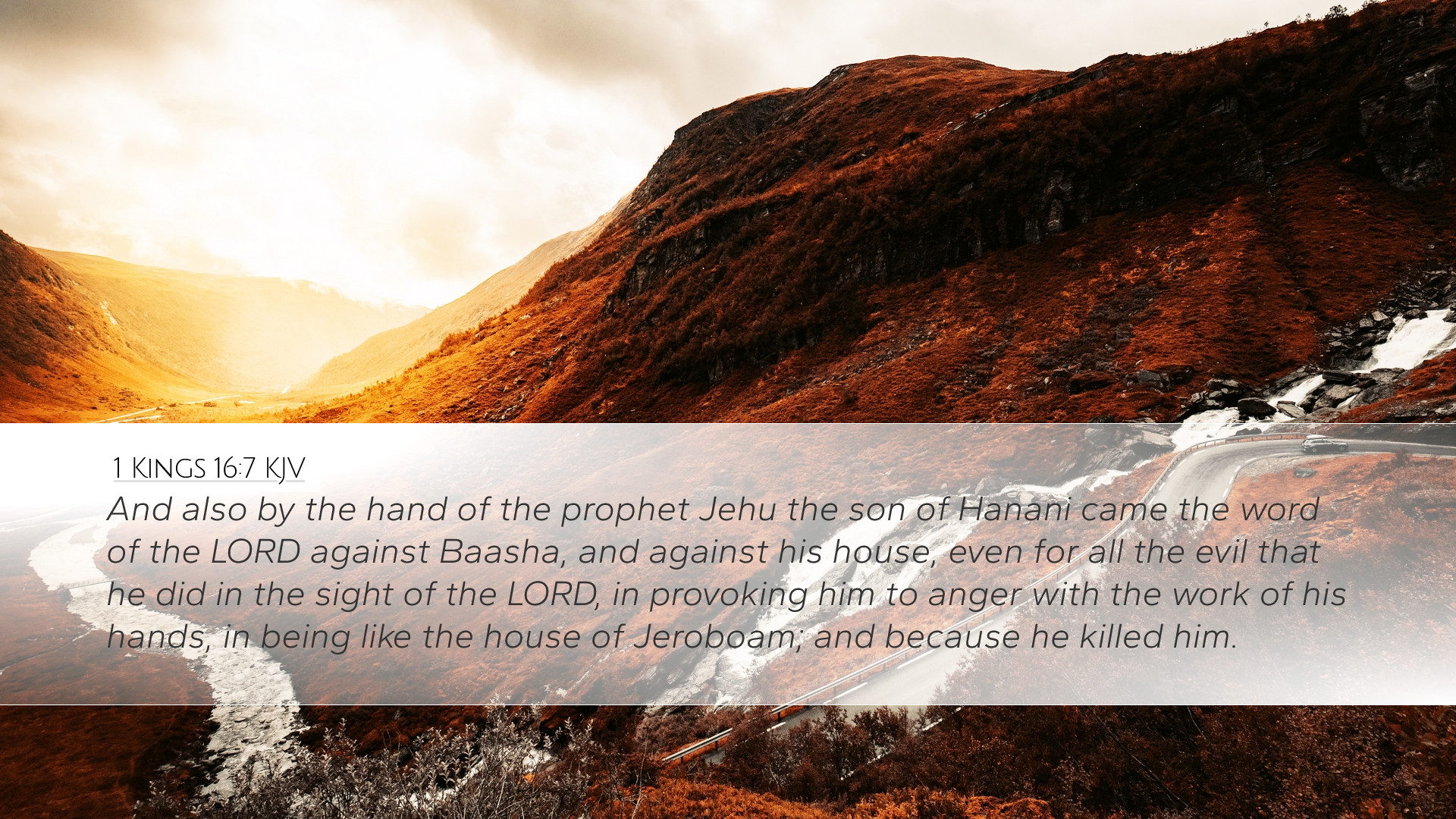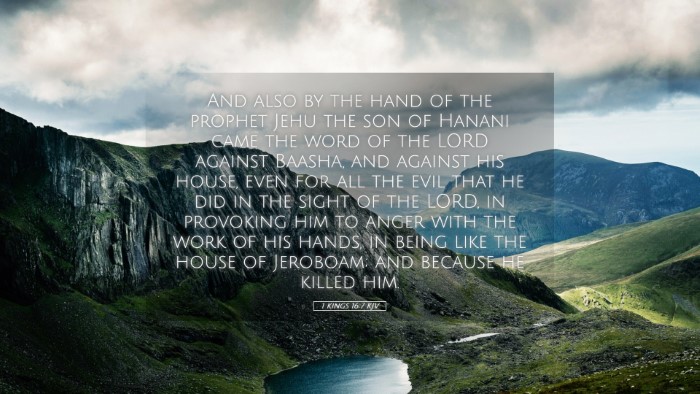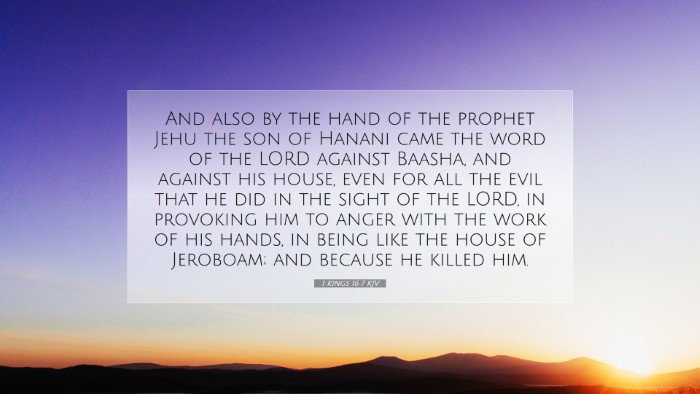Commentary on 1 Kings 16:7
Verse: "And also by the hand of the prophet Jehu the son of Hanani came the word of the LORD against Baasha, and against his house, and against the city of his house, even for all the evil that he did in the sight of the LORD, in provoking him to anger with the work of his hands, in being like the house of Jeroboam; and because he killed him."
Introduction
The passage from 1 Kings 16:7 contains a prophetic judgment that reflects the themes of divine retribution and the serious consequences of idolatry and evil leadership. The context surrounding this verse is crucial for understanding its significance in the history of Israel and its theological implications. In this commentary, we will draw insights from notable public domain commentaries to delve deeper into the meaning and lessons of this verse.
Contextual Background
The reign of Baasha marks a critical period in the northern kingdom of Israel. After Jeroboam's establishment of idolatrous worship, Baasha continued in the same sins, leading the nation further away from Yahweh. The prophetic voice of Jehu serves as a pivotal point, reminding the people of God's unchanging standards of holiness and justice.
Historical Setting
Baasha took power after assassinating King Nadab, Jeroboam's son. His reign embodies the ongoing cycle of sin and judgment prevalent in Israel’s history. The word of the Lord through Jehu highlights the continuity of prophetic ministry during a turbulent time for the Israelites.
Theological Insights
Understanding the implications of 1 Kings 16:7 provides significant theological insights applicable to both ancient Israel and contemporary believers.
1. The Role of Prophecy
According to Matthew Henry, the prophecy delivered through Jehu emphasizes God's disapproval of Baasha’s actions and serves as a reminder of the prophetic role in calling leaders to accountability. Prophets like Jehu were not mere foretellers of future events but instruments of God’s corrective measures.
2. Divine Judgment
Adam Clarke notes the weighty implications of divine judgment. Baasha is condemned not merely for his personal sins but for provoking God’s anger through idolatry and the murder of Jeroboam's lineage. The text serves as a sober warning of the severe consequences of disobedience to God’s commandments.
3. The House of Jeroboam
The reference to Baasha being "like the house of Jeroboam" signifies a continuation of Jeroboam's legacy of sin. Albert Barnes draws attention to the importance of lineage and the spiritual influences that govern a nation's leadership. The decision to engage in idol worship has lasting effects, tainting subsequent leadership and the trajectory of the people.
Lessons for Today
As the Church seeks to apply the scriptures, this verse leads to several thought-provoking reflections for modern believers and leaders.
1. Accountability in Leadership
Pastors and leaders are called to be models of righteousness and integrity. The story of Baasha serves as a cautionary tale on the importance of remaining true to biblical teachings and resisting corruption. Henry inspires leaders to strive for godliness, appealing to the moral responsibility that comes with leadership.
2. The Necessity of Prophetic Voices
In a world where many are led astray by false teachings, the need for prophetic voices remains crucial. As indicated by Clarke, the true prophet’s role is to speak against the evils of society and remind everyone of God’s will.
3. The Impact of Idolatry
Modern forms of idolatry may take various shapes—from materialism to secular ideologies. This passage challenges Christians to be vigilant against influences that would lead them away from God's truth. Barnes encourages believers to examine their hearts for any idols that distract them from serving the one true God.
Conclusion
1 Kings 16:7 stands as a powerful reminder of God’s sovereignty and the seriousness of sin. Through the prophet Jehu, divine judgment is proclaimed, serving as a testament to God's commitment to justice and holiness. Believers are called to heed these lessons, ensuring that their lives and leadership reflect obedience to God, shunning idolatry, and remaining faithful to the truths of the Scripture.
Further Reflection
- Reflective Question: In what ways can you identify modern parallels to the idolatry present in Baasha's reign?
- Prayer Focus: Seek God's guidance to uncover any hidden idols in your life and for the courage to stand firm in righteousness.


